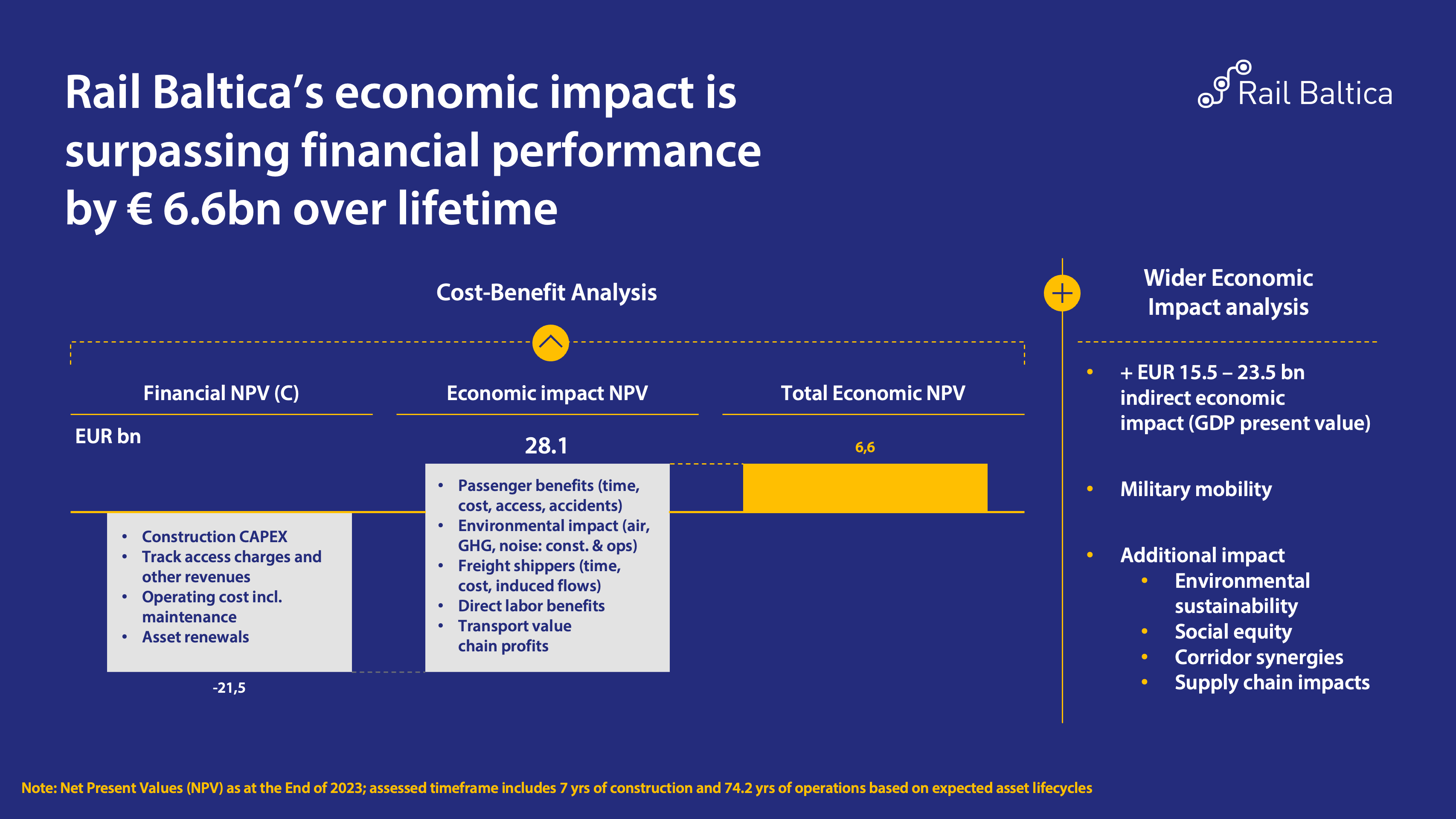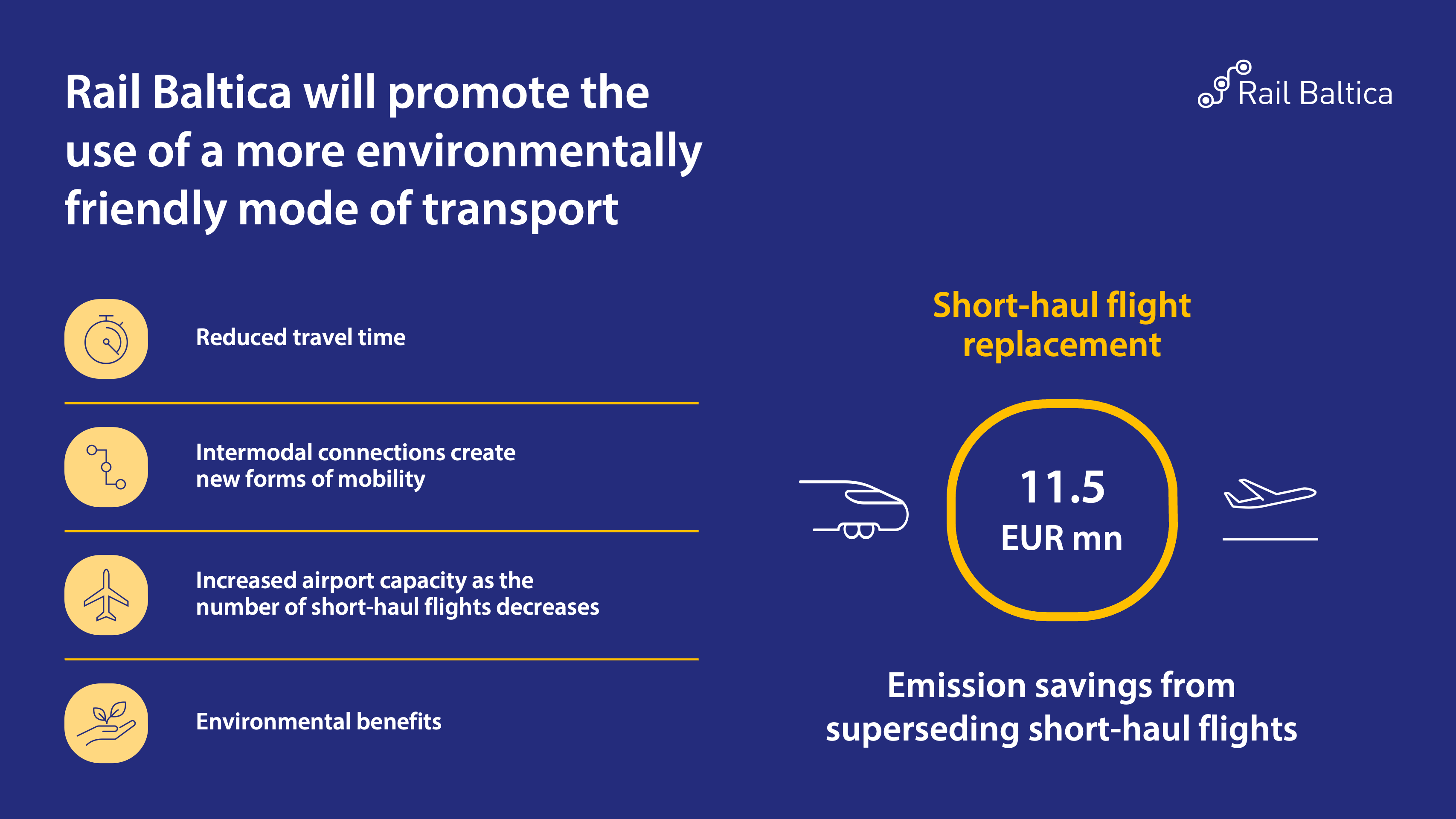
Economic Viability: Rail Baltica is economically viable, projected to generate 6.6 billion EUR in direct net benefits. Its broader economic impact, expected to range from 16.5 to 22.5 billion EUR over its lifecycle, underscores its importance in regional development. According to Cost-Benefit Analysis* Rail Baltica’s economic benefits, both direct and induced, are expected to surpass costs and amount in total to 48 billion EUR for the Baltic states.
Passenger and Freight Transport: By enhancing passenger and freight transport, Rail Baltica drives economic growth and environmental benefits in the Baltic region. Passenger transport alone is projected to account for 81% of the benefits, with significant contributions also from environmental improvements (14%) and freight transport (5%).
GDP Growth: Rail Baltica is anticipated to boost the Baltic region’s GDP growth by 0.5-0.7 percentage points annually. This growth will be fueled by increased land value, tourism, new business opportunities, enhanced labor productivity, improved competitiveness, and urban development initiatives.

Integration into Global Markets: Rail Baltica facilitates seamless integration into global supply chains, enabling efficient movement of goods to and from international markets. This integration promotes economic growth and supports key EU transport objectives.
European Transport Network Contribution: Rail Baltica plays a pivotal role in the European transport landscape, contributing 4.5% towards the completion of the core TEN-T network by 2030. It also supports 35% of the Baltic-Adriatic corridor, enhancing connectivity across Europe.
Accessible Transportation: Rail Baltica enhances social equity by providing accessible transportation options. Regional services are designed to serve 351 thousand low-income residents and 59 thousand passengers with reduced mobility, ensuring they have access to high-quality rail services and opportunities for economic participation.
Transition to Renewable Energy: Rail Baltica contributes to energy security by facilitating a shift from fossil fuels to renewable energy sources. This transition is projected to reduce energy consumption by 1.5-3.3%, aligning with EU goals for achieving net-zero emissions by 2050.
Environmental and Traffic Safety Improvements: Rail Baltica aims to enhance environmental sustainability and traffic safety. By reducing pollution and minimizing accident risks, the project promotes a safer and healthier environment for communities along its route.

Enhanced Defense Capabilities: Rail Baltica plays a crucial role in enhancing regional defense and security. It establishes new transportation routes and corridors, including planned extensions to Ukraine, which improve military logistics and supply chain efficiency.
EU Standard-Gauge Infrastructure: Rail Baltica represents a strategic shift towards independence from the 1520 mm network, providing EU standard-gauge 1435 mm infrastructure. This infrastructure supports seamless transport for passengers, freight, and military mobility, enhancing operational efficiency.
Efficient Military Transport: Future enhancements of Rail Baltica will integrate the specific needs of the defense sector. This includes facilitating rapid transport of military units and reducing loading/unloading times during both peacetime and potential conflicts, ensuring readiness and response capabilities.





